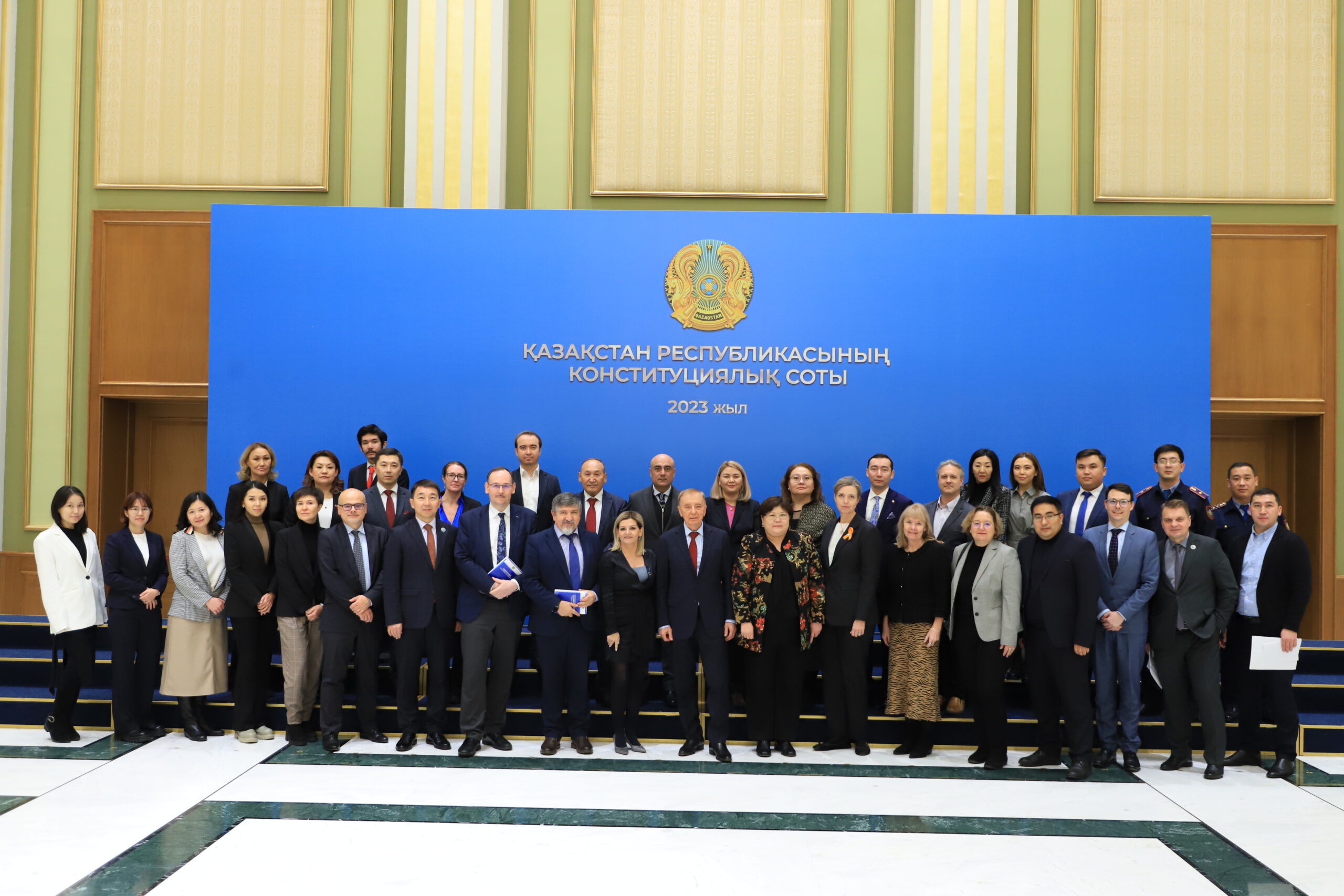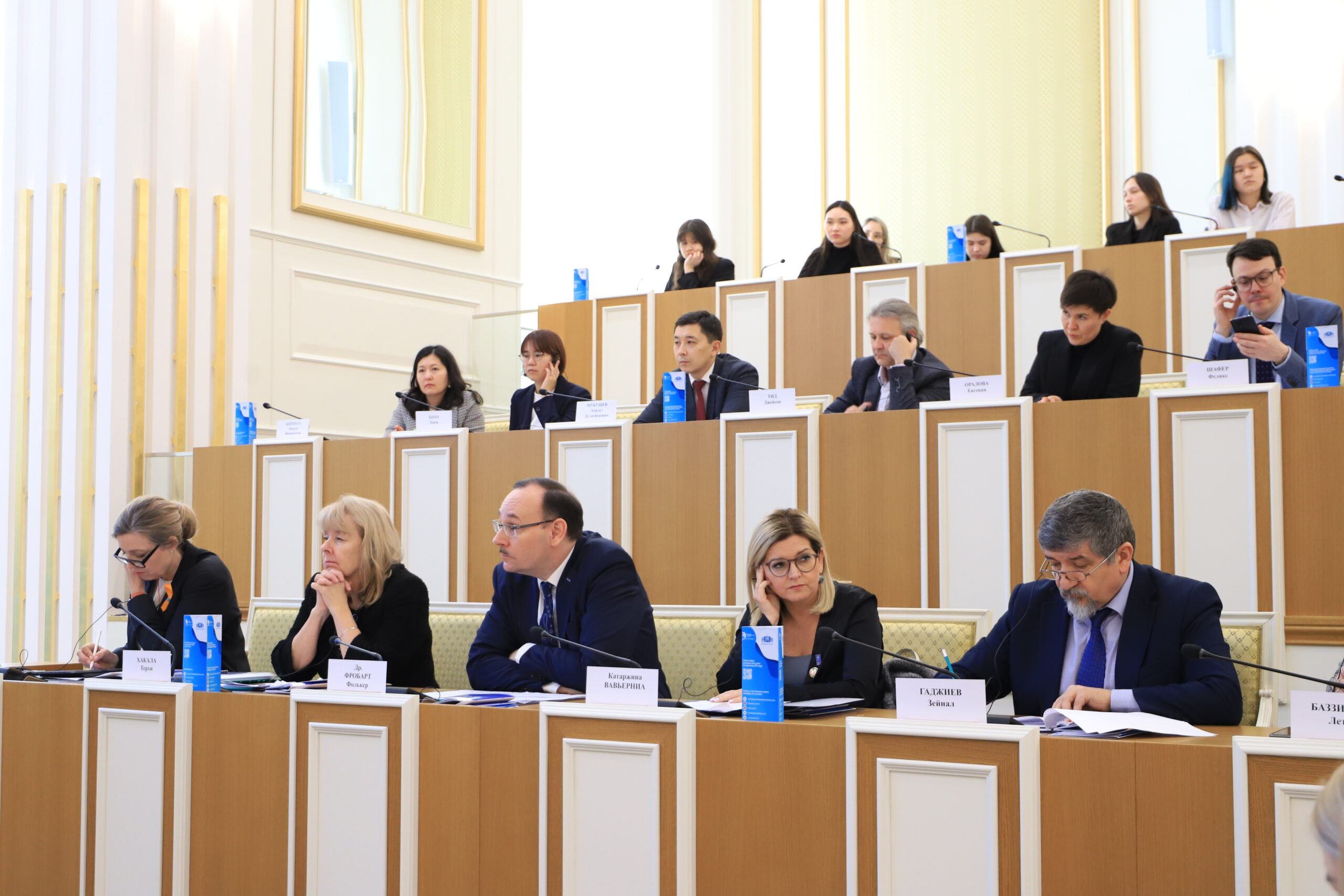ASTANA – International experts noted Kazakhstan’s active initiatives in human rights protection during a Dec. 5 briefing in the country’s Constitutional Court ahead of International Human Rights Day, reported the court’s press service.

Photo credit: gov.kz
These initiatives demonstrate the country’s desire to create a fair and open society, and readiness to cooperate.
The event brought together representatives from key regional bodies such as the United Nations (UN), Organization for Security and Co-operation in Europe (OSCE), United Nations Development Program (UNDP), International Organization for Migration (IOM), United Nations Office on Drugs and Crime (UNODC), United Nations Children’s Fund (UNICEF) and the European Union Delegation.

Photo credit: gov.kz
Constitutional Court Chairwoman Elvira Azimova, Chairman of the Presidential Commission on Human Rights Igor Rogov, and Deputy Foreign Minister Roman Vassilenko addressed the participants with welcoming remarks. They highlighted the significant role of Kazakhstan in Central Asia in carrying out large-scale democratic and political reforms, as well as in the ongoing initiatives to protect human rights.
The participants discussed key topics related to the role of justice in peace and the importance of promoting human rights amid current global challenges and prospects for sustainable development.
“Human rights are at the core of sustainable development and permeate all aspects of UN work both globally and in Kazakhstan. The UN in Kazakhstan focuses on empowering people, strengthening institutions, and building an inclusive, sustainable economy. The UN has supported Kazakhstan with many legal texts to enhance the human rights dimensions and strengthen the social contract,” said Michaela Friberg-Storey, UN Resident Coordinator for Kazakhstan.
“Most of the Central Asian countries are currently implementing major constitutional reforms. In Kazakhstan, this new Constitutional Court welcoming us today is a direct result of these important reforms, which aims, inter alia, to streamline the constitutional proceedings and introduce individual access to the Constitutional Court. I believe that this important event today will give additional incentives to continue the reform process aimed at improving the national human rights protection mechanisms for the benefit of all citizens,” stated Terhi Hakala, European Union Special Representative for Central Asia.
“I believe that series of important steps undertaken by Kazakhstan, including the adoption of the 2023-2025 Complex Plan to Prevent Violence against Children and Suicides, will improve protection of the rights of children in Kazakhstan and will contribute to achieving the relevant Sustainable Development Goals,” said Laetitia Bazzi-Veil, Acting UNICEF Representative in Kazakhstan.
“In the current situation, against the backdrop of numerous challenges of geopolitical, social, economic, and climatic nature, the Constitutional Court, the judicial, and law enforcement systems serve as guarantors of protecting the rights of citizens. The current statistics of appeals to the judicial bodies and the Constitutional Court underscore the need to enhance the efficiency of law enforcement agencies and improve the quality of judicial decisions, considering the constitutionality of existing and adopted laws. The UNDP is deeply committed to providing support to Kazakhstan in strengthening its legal framework and human rights mechanisms to ensure the rights and freedoms of individuals, leaving no one behind,” emphasized Katarzyna Wawiernia, UNDP Resident Representative in Kazakhstan.
Dr.Volker Frobarth, Head of the OSCE Program Office in Astana, informed that next year the OSCE plans to support the Constitutional Court by providing expert support and facilitating the exchange of best practices of international and national constitutional justice. This will include capacity-building training for the court staff and other related activities.
